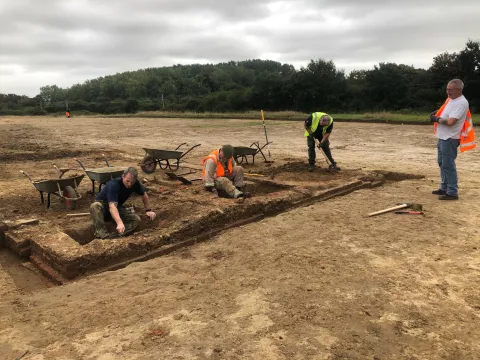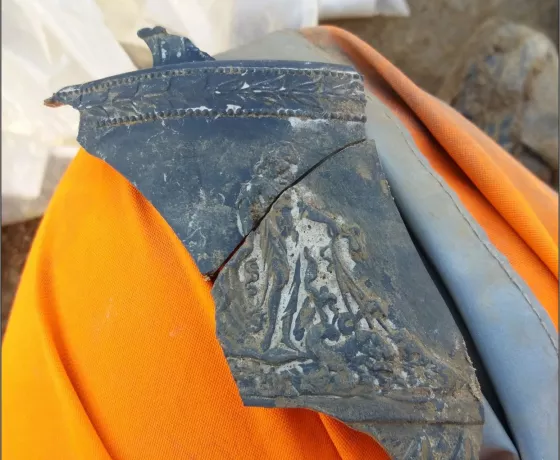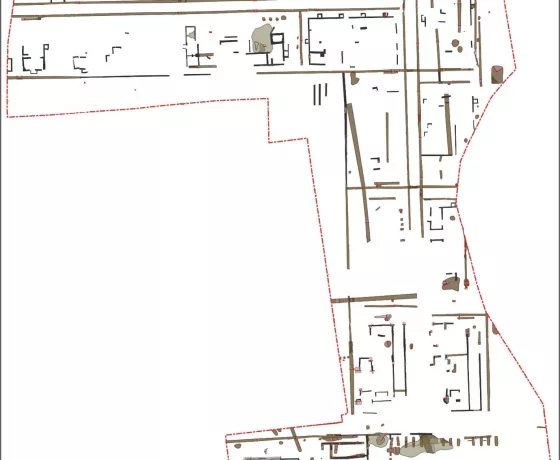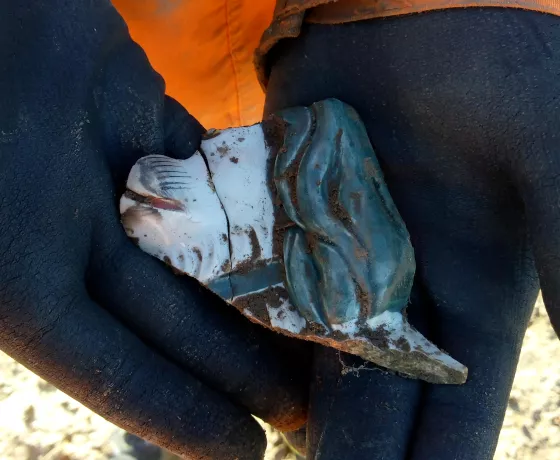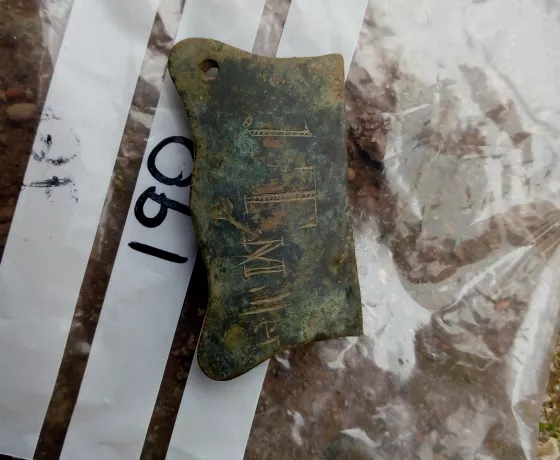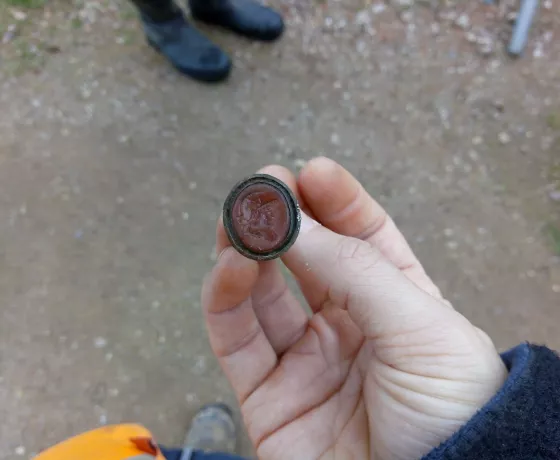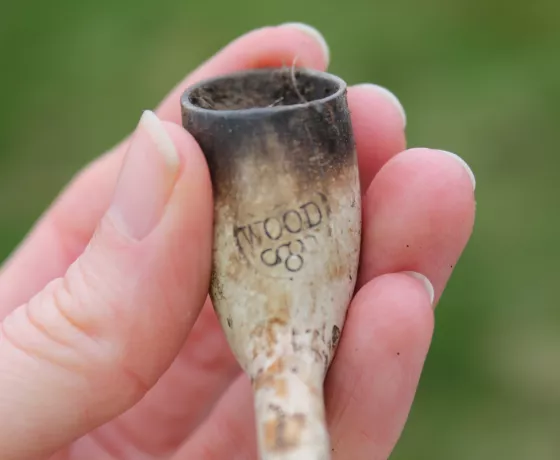At the start of the 19th century, Weeley was a small parish of 250 people. Between 1803 and 1814 the population swelled with the arrival of a military barracks to garrison the Martello towers on the Essex coast and to provide defence against French invasion. However, no physical evidence of the Napoleonic barracks known to have been sited at Weeley had been found until now.
Between August 2021 and February 2022, OA worked with RPS Consulting at the site where they carried out excavations ahead of new residential development for Rose Builders. The field was previously known as The Barracks and previous desk-based investigations had revealed that over 4,000 officers, soldiers and their families were stationed here between 1803 and 1815, waiting and preparing for a possible French invasion led by Napoleon. The team went on to discover not only the outline of the camp, but many personal objects that told the stories of those soldiers who were stationed there.
Through the collaboration with the Ministry of Defense Operation Nightingale, several veterans participated in the excavations and brought their own experiences and memories, making the whole project truly special. Weeley Barracks went on to feature in Current Archaeology magazine and is now nominated for the Rescue Project of the Year award. Here you can hear first hand experiences from the project manager and officer who led the fieldwork. As the analysis of the finds progresses, we will continue to update the story of Weeley Barracks and its people.
The project
Between August 2021 and February 2022, OA excavated the Weeley Barracks site in Essex, ahead of new residential development for Rose Builders. Great Napoleonic-era archaeology was awaiting the team.
Here Louise Moan, the project manager, and Nick Cox, the project officer, give an overview of the project.
Operation Sharpe: working with the community and veterans to discover the history
At Weeley, the OA team was lucky to have the support of the local community who shared information, memories, stories to bring the site back to life.
The participation of veterans from Operation Nightingale added real-life experiences of military life from former soldiers that used to belong to the same regiments who were stationed at the site in the early 19th century.
The story told through personal objects
As well as the outlines of the camp and foundations of some of the buildings, the OA team recovered many objects. Many of these were very personal possessions that told the stories of the people who lived at the barracks, waiting and preparing for a possible French invasion.
